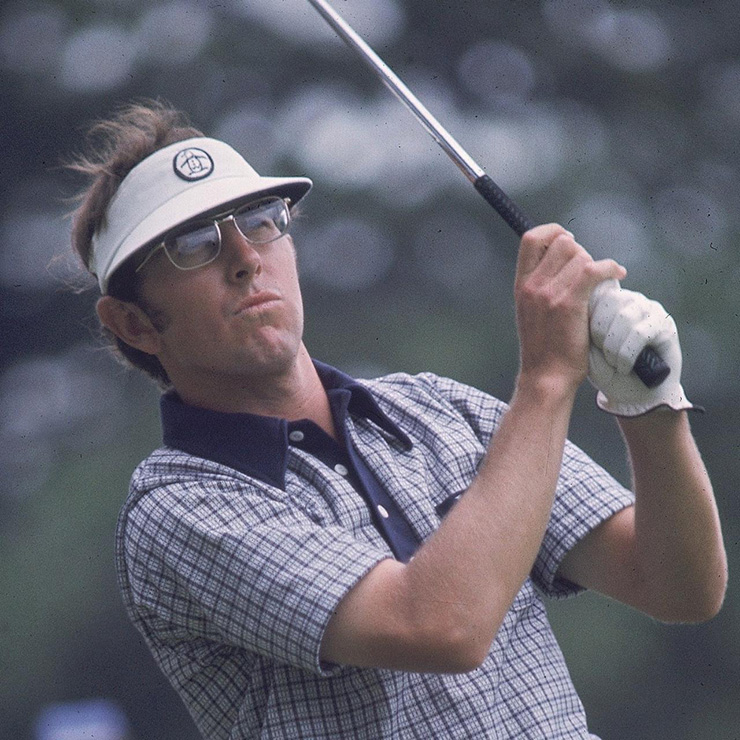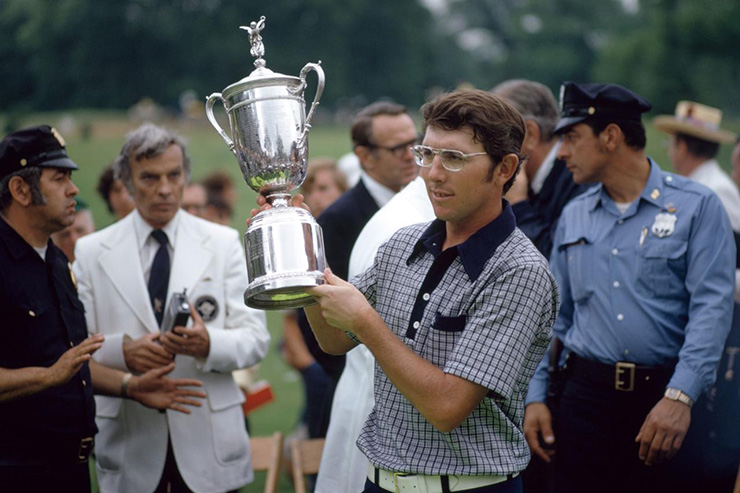Hale Irwin won the 1974 U.S. Open at Winged Foot at seven over par. (Leonard Kamsler/Popperfoto)
By Dave Shedloski
The course looked familiar. The course of action not so much.
Hale Irwin watched portions of the 120th U.S. Open with a mixture of appreciation and apprehension. Irwin was what you might call a prototypical U.S. Open player, one who adhered to a formula of precision and patience, and he won the championship three times, including the 1974 edition at Winged Foot Golf Club in Mamaroneck, N.Y. Irwin was the last man standing that year, surviving the famed “Massacre at Winged Foot” with a seven-over 287 total.
On Sunday, Irwin observed a different kind of massacre. Bryson DeChambeau, swinging all out and eschewing caution, pummeled the venerable West Course at Winged Foot and won by six strokes over another bomber, Matthew Wolff, with a six-under-par 274 total.
The perceived casualty, Irwin thought, was some of the essence of the game.
He wasn’t trying to sound curmudgeonly or be critical of DeChambeau. In fact, he commended him on the victory. “It was a dominant performance, absolutely,” Irwin said by phone from his home in St. Louis. “How could you not be impressed? Far and away he played the best.”
But how far DeChambeau and many of the top contenders hit it, without, apparently, a copious amount of concern for direction, had the Hall of Famer shaking his head a bit. DeChambeau won while hitting just 23 fairways, fewest by a U.S. Open champion since 1981.

Hale Irwin, shown competing at Winged Foot in 1974, says the premium placed on accuracy has been lost in the modern game. (John D. Hanlon)
Like the late Arnold Palmer and Jack Nicklaus, Irwin, 75, has long been a proponent of rolling back the golf ball.
“That’s one of the most staggering things I think I took away from this week, was that hitting fairways didn’t seem like a concern,” he said. “By comparison, hitting the fairway was everything in 1974 or you paid the price.
“The rough looked serious enough this week, but obviously wasn’t because everybody’s getting the ball out and on the greens. It’s just such a strange feeling to see that accuracy is kind of out the window. There’s only two ingredients in the game of golf, and it’s distance and direction. And distance has all but displaced direction, big time.”
Irwin, who won 20 PGA Tour titles and a record 45 more on the PGA Tour Champions, isn’t against technology. But he believes there has to be limits, “or we’re going to lose our connection to the previous eras,” he said. “I take nothing away from Bryson. I commend him on the win. I’ll be among the first to write him a letter of congratulations … and then I’m going to ask him who his trainer is. What he’s done fitness-wise is just mind-boggling.
“But I think he’s got everybody shaking their heads as to where we are going with the game of golf now,” Irwin added. “Have we lost our traditional comparisons of eras? I always thought that’s been a part of the allure of the game is that regardless of technology, you could compare Bobby Jones to Ben Hogan to Jack Nicklaus to Tiger Woods. I’d hate to see us lose that connection with players of this era and beyond.
“We need to maybe stop and think about what we want the future to be. And what’s the best thing for the game. I’m not saying I have the answers. I just think we should be asking those questions.”









